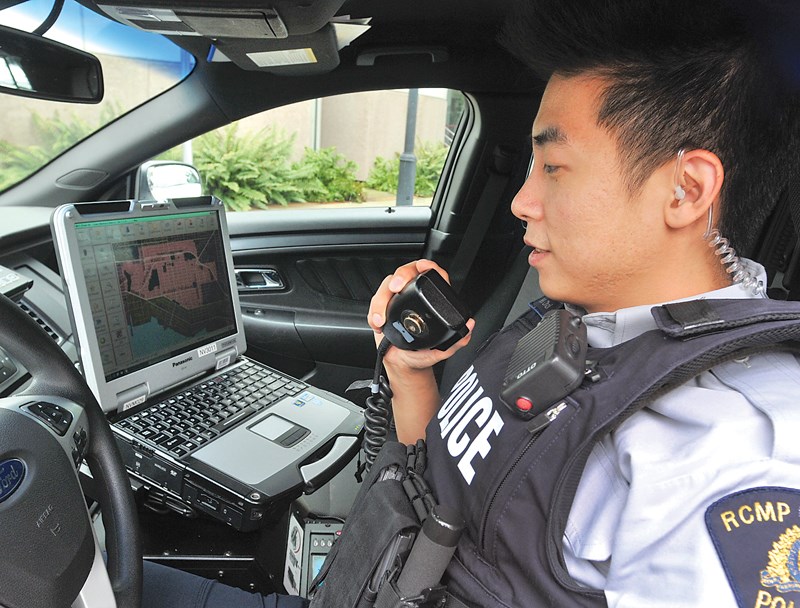Const. Myung Hwan Choi sometimes catches people off-guard with his multi-lingual dexterity.
“I look Asian,” he says. “If I do speak to them in Spanish, people get really surprised.”
At times, during investigations, he’s even been able to catch conversations between witnesses that they didn’t think the North Vancouver police officer would understand.
But as a polyglot who was born in Korea and immigrated as a child to Paraguay before his family settled in Canada, Choi fluently speaks Korean, Spanish and English.
Choi is among a growing number of police officers who is able to use his language skills in carrying out his duties in a multi-cultural population.
Among the group of RCMP officers he works with, Choi isn’t alone in his lingual dexterity.
Most of the other officers on his 12-person team speak at least one other language, including French, Greek, Farsi, Arabic, Italian, Punjabi and Turkish.
Of the 130 RCMP officers posted to North Vancouver, almost 60 officers speak at least one additional language, says Corp. Richard De Jong, spokesman for the detachment.
In addition to the 20 French speaking officers, some of the languages spoken include Bulgarian, Russian, Cantonese, Croatian, Serbian, Hindi, Urdu, German, Swiss German, Gujarati, Japanese, Portuguese and Kurdish.
Volunteers at the North Vancouver Community Policing office also reflect the cultural mosaic of the local community, said De Jong. Collectively, the volunteers speak French, Farsi, Arabic, Spanish, German, Russian, Korean, Punjabi, Hindi and Japanese.
“It’s pretty multi-cultural here in North Van,” says Choi. “I think it’s a great asset to have, especially if you can help your colleagues.”
Choi has been called out by a number of detachments to translate for victims of crime, witnesses and suspects who speak other languages.
Usually, “they’ll be really glad to speak with an officer who can speak their language,” he said.
“Sometimes you get a totally different story than you’ve got in English” – mostly because people lack the ability to provide details if they don’t speak English well.
Choi said he has to be careful when speaking with suspects to make sure they understand their rights. Police officers have cards warning people of their right to remain silent and to speak with a lawyer that they can access in multiple languages but it helps to reinforce that verbally, said Choi.
“Even people who speak fluently in English sometimes have difficulty understanding that.”
De Jong said having so many officers who can speak other languages is a definite benefit to the local RCMP and one of the ways the force has evolved over the years to reflect the diversity of the general population.
“For a lot of people, English is their second language,” he said. Having the ability to speak directly to them in a language they are most comfortable in has “been to our benefit and we’ve taken advantage of it for many years,” he said.



